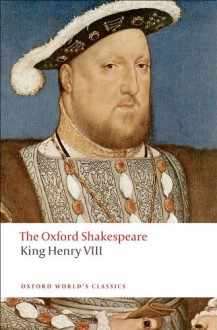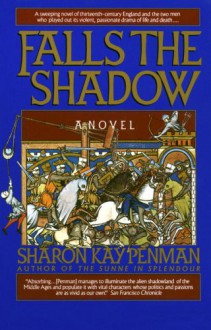
I write this review as one of the members of behalf of Rosie’s Books Review Team. I was provided with a free copy of the book as part of the team.
I have read and enjoyed La Petite Boulain, the first book in the Above all Others series and really enjoyed getting to know a bit more about Anne Boleyn’s childhood, and particularly, the way the story was told, in the first person from the point of view of young Anne, or, to be more precise, the young Anne as remembered by the older Anne at the moment of awaiting her death in the Tower.
Here we see Anne return to England after spending part of her childhood and teenage years in courts abroad. She is sad to leave France, as she feels by now more French than English, and the weather and the difficulties of her trip don’t help make her feel at home. Luckily, things take a turn for the better quickly. She meets Thomas Wyatt, a neighbour, accomplished poet, and a childhood friend, and once she joins the court, becoming one of Queen Katherine’s ladies in waiting, she soon meets interesting people, makes new friends, rekindles old friendships, and becomes a fashion icon and very admired for her style, accomplishments, and her personality.
I was curious to see how this novel would portray Anne as a young woman, in an era more familiar to most people than that of her early years. She is presented as an interesting mixture of a clever and intelligent woman, with far wider knowledge and experiences than many of the women her age she meets, but still a young girl at heart, who loves the idea of courting, handsome and romantic knights, and has to admit to being proud of the way men are attracted to her and women copy her dresses and jewels. She changes her mind often and she thinks she is in love with Tom Wyatt one day, although it’s an impossible love, but then decides it’s only friendship. She falls in love with Henry Percy (of much higher standing than her as he’s due to become the Earl of Northumberland) and with her father’s approval pursues a marriage that would have been very advantageous for her family, but when Cardinal Wolsey and Henry’s father forbid the match, her disappointment makes her hate him. And then, there’s King Henry…
I must confess that I enjoyed the discussions about Anne’s ideas and her education in religion and philosophy in the first book, and there were only passing references to it here (partly because she worried about the company she keeps and how they would react if they were aware of her opinions, and partly because there are other things that occupy more of her time), and there is much more about romance and romantic ideas. King Henry seems to notice her following an accident (although perhaps before that) and her behaviour and her refusal to become his mistress seem to spur him on rather than make him forget her and move on. If Henry Percy gave up on her without a fight, this is a man who would risk everything (even the future of his kingdom) for his own enjoyment and to prove himself, and in Anne, he meets a challenge. Not being a big reader of romance, the pull and push of the relationship and the will she/won’t she (especially knowing how things will turn up) part of it was not what interested me the most, although the scenes are well done and I found the fights and disagreements between the couple enjoyable. I became intrigued by King Henry’s portrayal, not so much by what he does and says, but by how others see him. There is a very apt warning her brother George gives her, recalling how King Henry was walking with his arm around a nobleman’s shoulders one afternoon and two days later the said nobleman’s head was topping a pole on the King’s orders.
I was more interested in matters of politics and alliances (confusing as they were), the inner workings of the court, marriages and births, and Anne’s reflections about the roles of women and men in the society of the time, that she struggles against but ultimately feels obliged to follow. I was also intrigued by the depiction of her family, her brother George, always close to her, her sister Mary, who although Anne always saw as too free and easy, she comes to understand and appreciate (and who manages to achieve a happy existence in her own terms, eventually), her mother, who suffers from a strange illness, and her father, who appears to be only interested in the family’s advancement (although claims that it is not for himself, but for those who’ll come after). He seemingly has no respect for morality if it can get in the way of achieving his goals, and at times he treats his daughters as pawns or worse. In the novel, Anne is portrayed as having much of the initiative, at least at the beginning, regarding her relationship with King Henry, but I was very intrigued by the role her uncle, the Duke of Norfolk, would come to play, and how much he influenced later events and the rise of Anne to become Queen.
This volume made me wonder, more than the first one, how reliable a narrator is Anne supposed to be. She makes a very interesting comment about wearing masks and the fact that we all perform our roles in public, whatever our feelings or thoughts might really be. After all, this is Anne remembering her life and trying to distract herself from her likely dark fate. Sometimes she does protest too much, when talking about her accomplishments, intelligence and fashion sense, and insists that she does not believe in false modesty. She also talks about Tom Wyatt’s affections and how she had not encouraged him, but she evidently enjoys his attentions. At other times, she describes events and scenes as if she were at the same time protagonist and observer (from telling us what she was feeling and her concerns, she will go on to describe what she looked like or what she was wearing). She does highlight the behaviours she thinks show her in a good light and easily finds ways in which to dismiss some of her more selfish or problematic behaviours, but at a time such as the one she’s living through, after having lost everything and everybody, it’s only understandable. If anything, it shows her as a complex and contradictory individual and makes her appear more real.
The writing is once more fluid and beautifully detailed, bringing to life places, customs and times long past.
Although I know what will happen next, I’m intrigued to read Anne’s version of events and look forward to the next book. I highly recommend this series to anybody interested in Anne Boleyn who enjoys historical fiction, and to anybody who is considering reading about such a fascinating historical figure.


 Log in with Facebook
Log in with Facebook 









